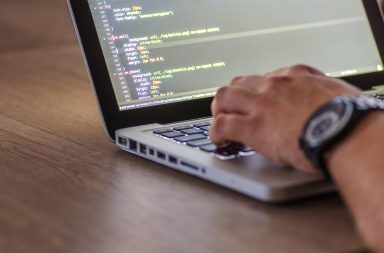By Ujjaene Acharjee
‘Street lawyering’ – did it sound a bit different? Or, out of track? Perhaps, yes to many of us!
When I was in the first year of my law school, the first thing that came into my mind immediately after hearing the term ‘street lawyering’ was, “O-K-A-Y! May be I have to sit under a banyan tree and give legal advice to those people who need them the most”. But I was wrong, I was wrong in a radical but virtuous way.
‘Street Law’ (in Bangla: Protidiner Ain) basically is an awareness program undertaken for and among the grassroots people and school-going children; about human rights, democratic norms, civic rights and duties and other petty legal issues which they face in their daily life. This judicious approach is done by using interactive class-room teaching methodologies.
But in my view, street lawyering is a term which is used to define the endless efforts of those energetic and responsible law students or lawyers, who are committed to bring social justice and lessen the pain of poverty stricken people or the disadvantaged section of our society. Besides, street lawyers are devoted to generate the leadership quality among the school going students who have the ability to bring positive changes in our society.
One may ask the bits and pieces of street lawyering and to meet up the query I need to take help of my mentor organization Empowerment through Law of the Common People (ELCOP). According to ELCOP’s point of view, the key objectives of running this program is to give a clear idea of right and duties, provide legal information essential for daily life, create awareness about rights of deprived segments of people, especially women and children, motivate people so that they can play a role of stakeholders in establishing rule of law, and last but not the least – to educate responsible citizenry.
When I received training from ELCOP, my mentors taught me to put my feet into the shoes of those discriminated people, who are the actual focus or target group of street lawyering. The ground breaking rule they taught us was to be one of them while giving them training. If you hold the ‘teacher-ish’ look on your face, they might not accept your ideas or teachings. We were taught the techniques of not to lose the control from the class and students, and that too in a less formal way.
Now, when I am standing almost at the last stage of my law school, I often look back and ask myself the most common but an obvious question, “What did I learn all these years from law school lectures? What I am taking along with me in next stage of my life from those class notes and lectures?” There is no limit of learning; but still if I am asked to answer the above mentioned questions, then my answer would be – “Yes, I have learnt, but a very little.” However, that does not mean that I have learnt absolutely nothing during my law school days. Street lawyering and mooting – I will be grateful to these two resources forever, because these two co-curriculum activities had taught me more than those lectures of my classes did help me learn.
“Apu, I have changed my aim in life, now I want to switch to humanities from science only to study law for my graduation” – that was an incredible comment or rather a compliment, from one of my street law students in Holy Cross Girls’ School. “Apu, I will never remain silent if I come through any kind of injustice happening around me; because now I know the procedures of filing an FIR” – another comment from a student of Nilkhet Government High School.
“Apu, I wouldn’t have realized at all that the maid-servants of my home are equally entitled to receive education like I do. You and your team’s short play has opened my eyes. I will not call them “kaajer-bua” anymore, but I will address them respectfully and treat them as one of our family members from now on.”
“Dear, you have opened my eyes. I neither will ask for any dowry when my son gets married nor will agree to give any when I will look for a son-in-law for my daughter. Dowry is a curse; we have to eliminate it from our society” – these words of Mr. Abdul Hakim, a fisherman, brought tears in my eyes, while working as a trainer in remote areas of Sundarban. That day, my hard work as a street-lawyer became fructuous, I believe.
“Apu, I am sure you do enjoy being a law student, don’t you?” – before answering it to Auditi, an enthusiastic mind of University Laboratory School, I answered it to myself, “Yes obviously, like anything!”
Words are strength, words are power and words have sparks. Miracles happen when people meet together. Good things happen, inspirations get activated. This miracle happened to me while working as a street lawyer because I not only try to impart my part of little knowledge to them but fold tons of experience in my basket. It is a two-way communication method which enables both trainers and trainees to gather knowledge of cosmic amount.
From the time when I am motivated by the motto, ‘learning by doing’ – by my mentor Professor Dr. Mizanur Rahman Sir, I took street lawyering as an integrated fragment of my law school life. It is such a challenge which shoves me to leap the boundaries of nominal legal studies.
Are you prepared to take this challenge? Then keep calm and be a street lawyer!
Ujjaene Acharjee is an International Civil Servant currently serving her tenure in International Organization for Migration (IOM). She had pursued her LLB from University of Dhaka. Street Lawyering is the platform from where she started her endeavor to ensure human rights for All. Now, she is specifically focusing on labour migration sector which is in the need of global community’s special intervention. She can be reached at uacharjee@iom.int



